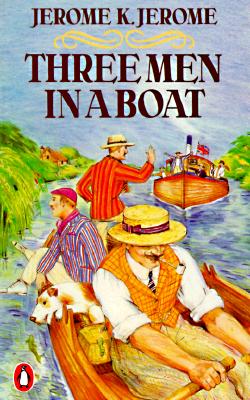And he went off quietly after he had drunk it and got into another carriage, which I thought mean.
From Crewe I had the compartment to myself, though the train was crowded. As we drew up at the different stations, the people, seeing my empty carriage, would rush for it. “Here y’ are, Maria; come along, plenty of room.â€Â “All right, Tom; we’ll get in here,†they would shout. And they would run along, carrying heavy bags, and fight round the door to get in first. And one would open the door and mount the steps, and stagger back into the arms of the man behind him; and they would all come and have a sniff, and then droop off and squeeze into other carriages, or pay the difference and go first.
From Euston, I took the cheeses down to my friend’s house. When his wife came into the room she smelt round for an instant. Then she said:
“What is it? Tell me the worst.â€
I said:
“It’s cheeses. Tom bought them in Liverpool, and asked me to bring them up with me.â€
And I added that I hoped she understood that it had nothing to do with me; and she said that she was sure of that, but that she would speak to Tom about it when he came back.
My friend was detained in Liverpool longer than he expected; and, three days later, as he hadn’t returned home, his wife called on me. She said:
“What did Tom say about those cheeses?â€
I replied that he had directed they were to be kept in a moist place, and that nobody was to touch them.
She said:
“Nobody’s likely to touch them. Had he smelt them?â€
I thought he had, and added that he seemed greatly attached to them.
“You think he would be upset,†she queried, “if I gave a man a sovereign to take them away and bury them?â€
I answered that I thought he would never smile again.
An idea struck her. She said:
“Do you mind keeping them for him? Let me send them round to you.â€
“Madam,†I replied, “for myself I like the smell of cheese, and the journey the other day with them from Liverpool I shall ever look back upon as a happy ending to a pleasant holiday. But, in this world, we must consider others. The lady under whose roof I have the honour of residing is a widow, and, for all I know, possibly an orphan too. She has a strong, I may say an eloquent, objection to being what she terms ‘put upon.’ The presence of your husband’s cheeses in her house she would, I instinctively feel, regard as a ‘put upon’; and it shall never be said that I put upon the widow and the orphan.â€

